Fat is not a feeling
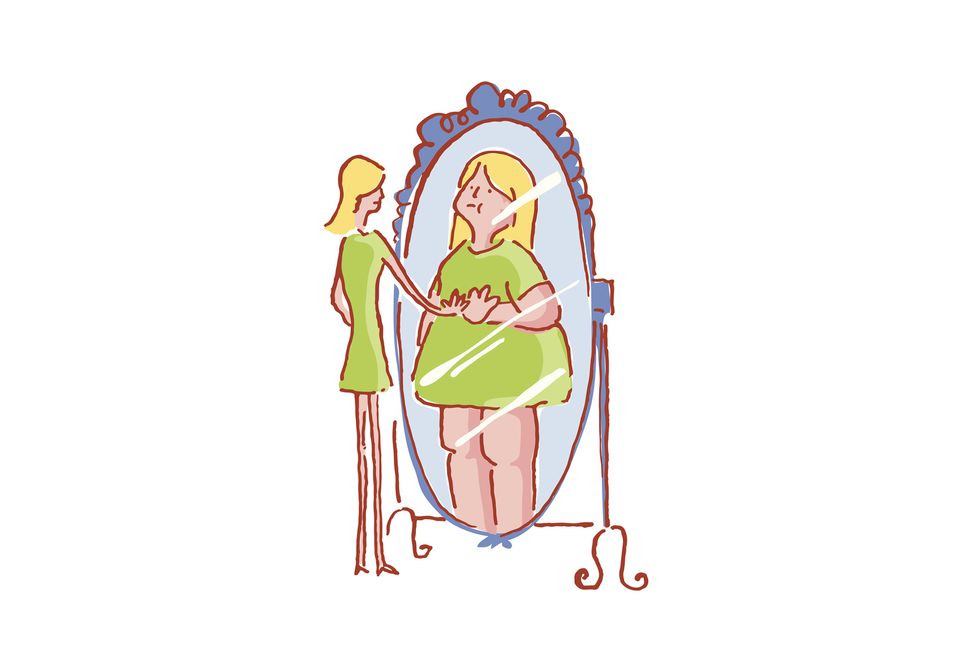
I often catch my friends commenting that they "feel fat" when they are not at their best emotionally. They "feel fat" when they are having trouble dating or in their relationships. They "feel fat" after they stayed up until 2am racing to meet a work deadline. They "feel fat" after having too many beers and hot wings at a Super Bowl party.
When someone says they "I feel fat", they are expressing a feeling of discomfort projected onto their body shape. But oftentimes, the feeling goes much deeper than a simple judgment of their appearance.
"I feel fat" may indicate a variety of underlying emotions such as overwhelm, shame, lack of control, rejection, undesirability, fear, depression, exhaustion, insecurity, or loneliness.
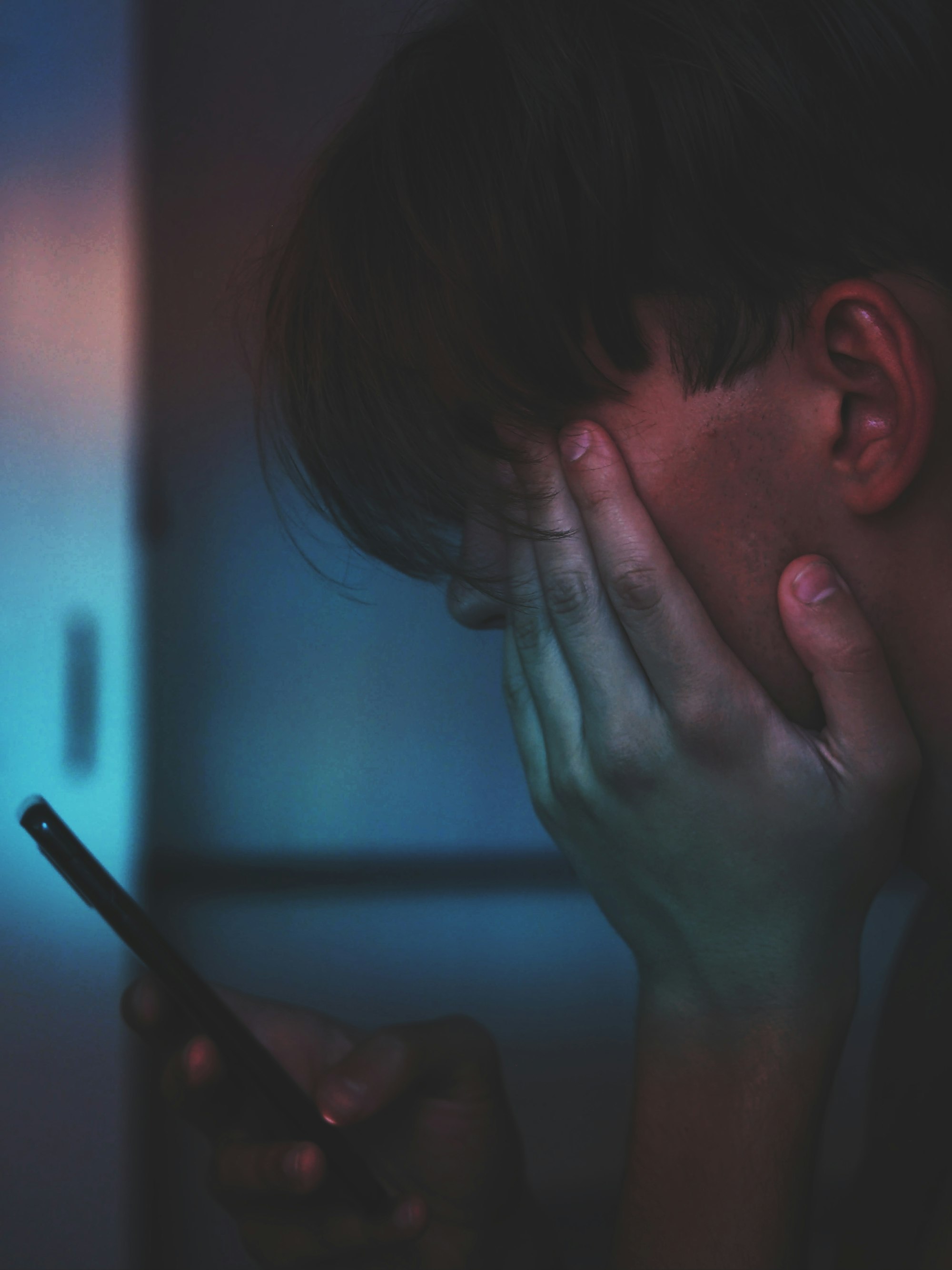
By pinning our discomfort to the surface level issue of scale weight or pant size, we relieve ourselves from facing something much more difficult: the source of our emotional pain. In the near term, we sidestep the deeper issues that we don't want to address. In the long term, we allow underlying distress to fester and worsen while we ignore it.
It takes a lot of courage to honestly examine what is driving our feelings of "fatness", because it often leads us to our core insecurities. But we must do this hard inner work to be free from the enduring grasp of body shame.
"I'll be happy once I lose the weight."
Have you ever said this to yourself after embarking on a new diet or exercise program? I certainly have, many times over.
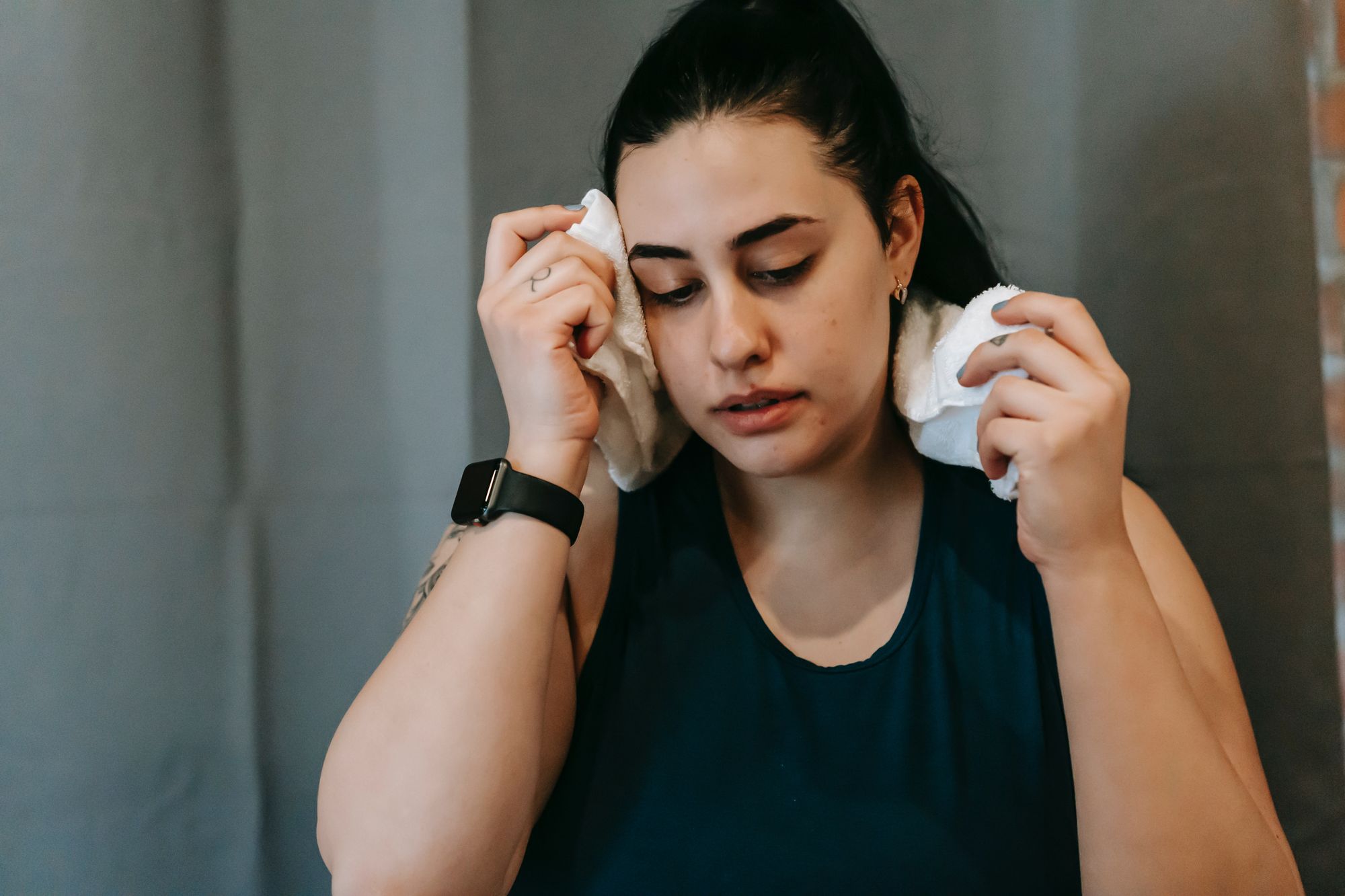
Throughout my teens and early 20s, I suffered from depression, social anxiety, and low self esteem. I consistently chose to isolate myself, so it's no surprise that I didn't have a single friend to turn to in times of need. I wanted to hide from the world and I honestly didn't know how to help myself. Instead of taking ownership of my emotional and social health, I would blame all my problems on my weight. "People don't like me because I am fat", I would tell myself. "My life would be a hundred times better if I was skinnier." "I can be a normal person once I lose the weight, move to a new city, and start over."
Of course, none of that was true. I know this today, because my now-husband and my closest friends loved me the same when I weighed 160lbs as they did when I weighed 140lbs. They have always valued me for my character, not my body shape.
As Taylor Swift wisely said, "I'm the problem, it's me." I framed my anti-social behavior and loneliness as a problem with my body, but it was really a problem with my state of mind. For me, it all started in middle school, when I had a falling out with my core group of friends. I don't remember what happened exactly, but I slipped up somehow, and was rejected and shunned in return. My 12 year old self internalized the message that she didn't belong. Little did I know, my response to that experience would end up affecting my ability to connect with other people for decades to come.
My real issues had very little to do with how I looked, but I insisted on making them about how I looked. It was easier to put the blame on my external appearance rather than face what was going on internally. Deep down, I knew that I was mistaken in this line of thinking, but I still let it take over. Repeatedly. At various stages of my life.
In 2014: I was 22 years old and at the height of my struggle with depression and anxiety. I persistently ate my feelings, and ballooned to the heaviest weight I have ever been. I was so ashamed of my appearance that I avoided going out in public as much as I could. I was overweight, lonely, and unhappy.
In 2020: I was 28 years old and I felt like my life was finally coming together. I had fallen in love with the gym and had been training 5 days a week for over 3 years. The world was shutting down due to the COVID-19 pandemic, and instead of dealing with the trauma that came with lockdown, I took it as an opportunity to pour all my energy into dieting, exercising, and "improving my body". I became the leanest I have ever been, but I also became moody and exhausted. I was fit, lonely, and unhappy.
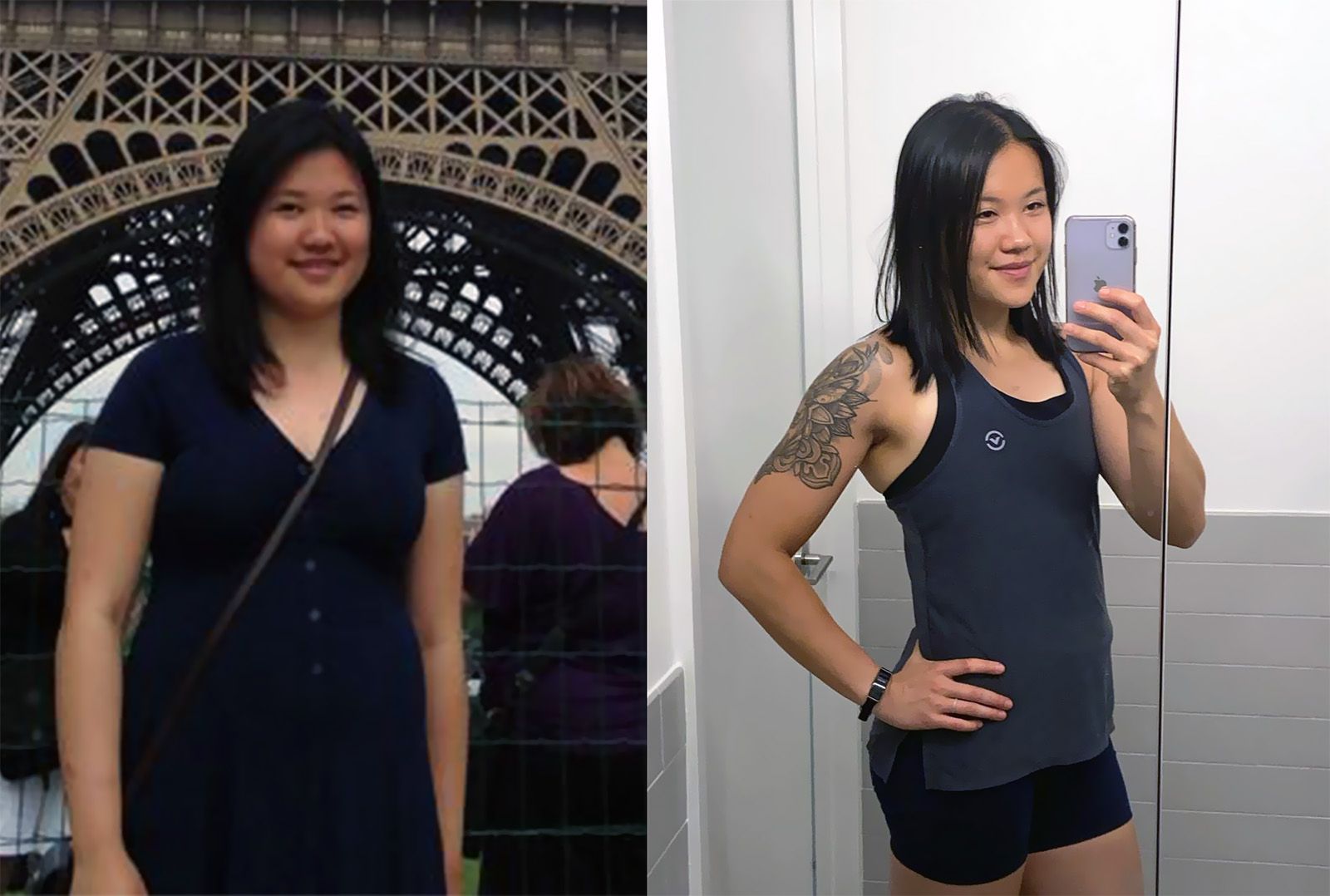
Comparing these photos, it's obvious that my body composition and appearance changed over the 6 years in between. I would definitely say that I was more conventionally attractive in 2020 than I was in 2014. But the surprising thing is, I was equally unhappy and equally critical of my body and appearance in both photos. Even when I arguably looked my best, I still felt like I didn't look good enough. The underlying turmoil I was dealing under the surface was one and the same.
The bottom line is:
Improving how your body looks might also improve your physical health, but it won't fix your emotional health.
As much I've worked to overcome it, I've accepted that my fear of social rejection will likely afflict me for the rest of my life. The important thing is that being aware of it helps me manage it. And it helps me remember that fat is not really what I'm feeling and weight loss is not really the solution to my problems.
So what are you really feeling?
That is enough about me, what about you? The next time you're feeling "fat", I encourage you to go a level deeper and get in touch with how you're actually feeling. Believe me, I know how hard can be to identify your emotions sometimes. Even though it seems primitive, using a tool like the "feelings wheel" below can serve as a first step in that process.
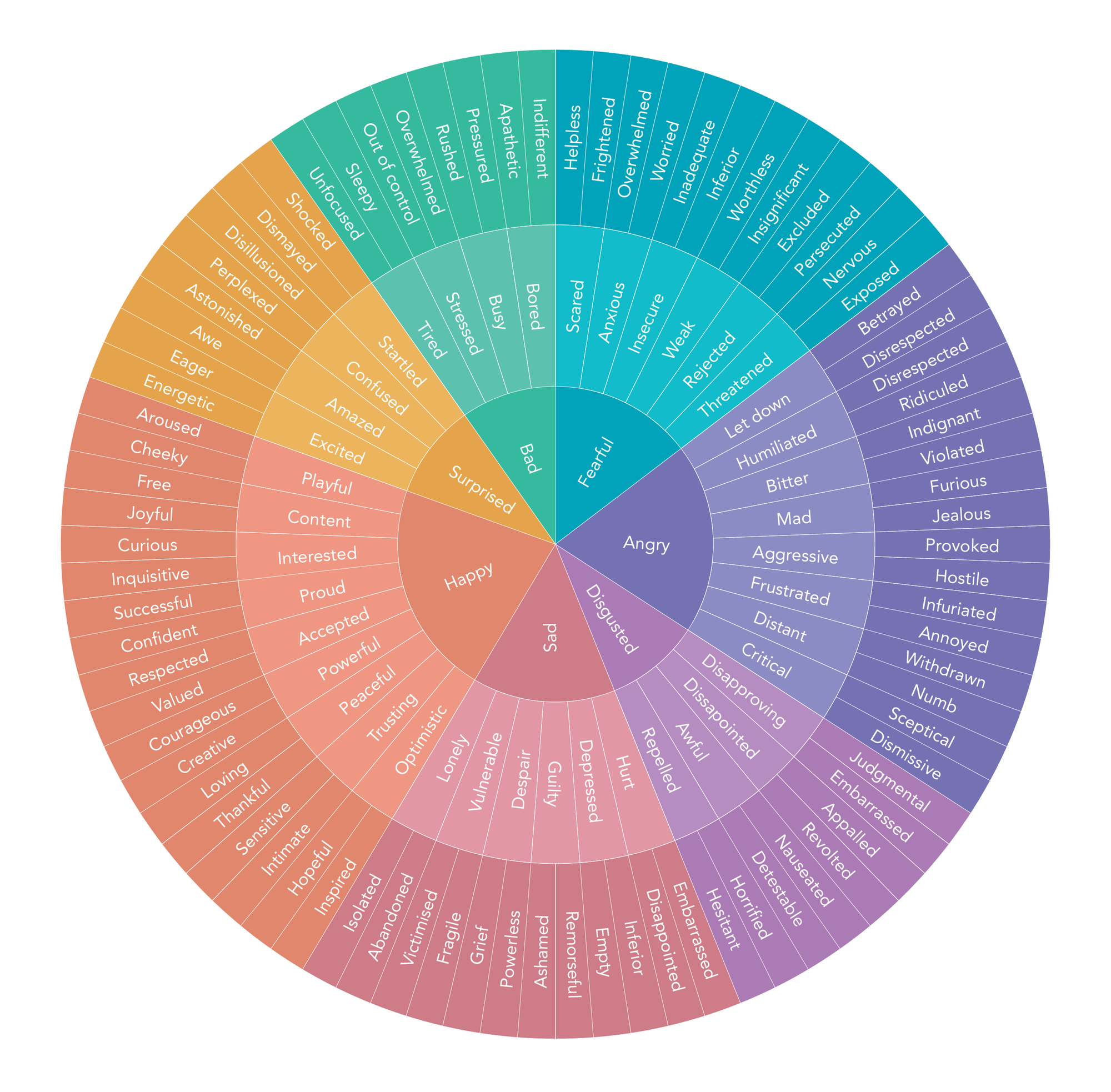
Here are just a few of the feelings that we commonly describe as the feeling of "fatness".
I'm feeling physically stuffed.
I simply ate too much and I now feel physically uncomfortable.
I'm feeling guilty about neglecting myself.
I've been busy and stressed, and haven't been nourishing my body with nutritious food and physical activity.
I'm feeling unlovable.
I am afraid of rejection on the basis of my appearance. I would like affirmation that I am worthy of love.
I'm feeling inadequate when I compare myself to others.
I am worried that I do not measure up to the standards set by others. I am feeling insecure about myself.
For the record, I'm not trying to downplay the benefits of weight loss. For many individuals, losing excess body fat can be the single most effective action they can take to live longer, pain-free lives. The weight loss process can build discipline, boost their self-esteem, and (as sad as it is that this is the case) dramatically improve how others treat them.
But one thing that weight loss will never do for us is remove all the deep-seated negative emotions we feel toward ourselves. And we shouldn't expect it to, because those feelings have nothing to do with how much we weigh.
It is completely normal to feel uncomfortable in our bodies or question our desirability from time to time. Ultimately, it is how we respond to those feelings that makes the biggest difference. The more we can dig into our most difficult emotions and separate them from the way we look, the more fully we can understand ourselves and start the process of healing.

